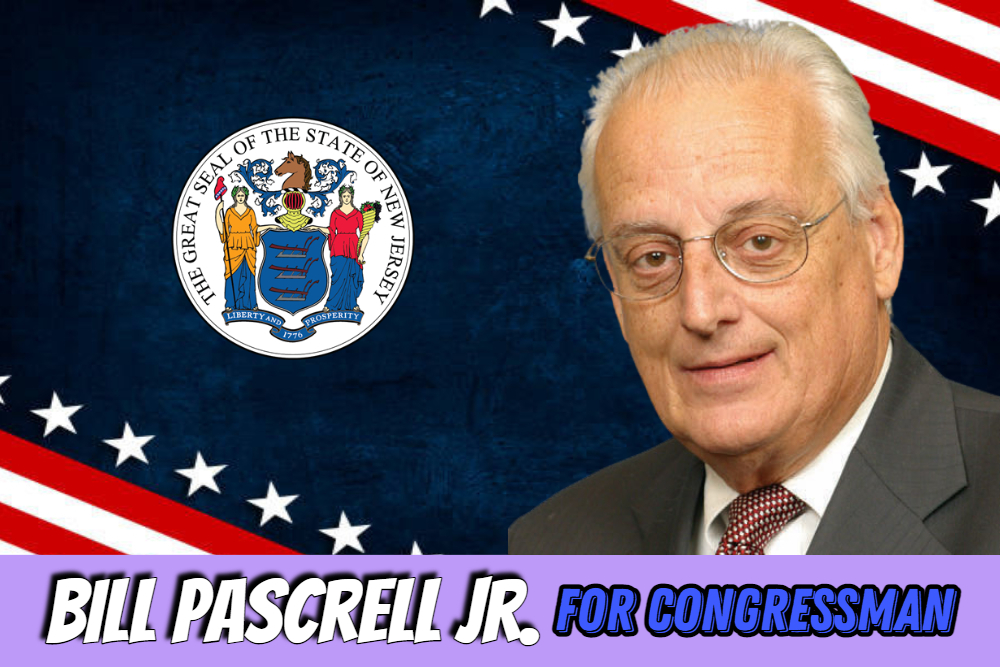President Biden moves to strengthen law enforcement accountability helps heal frays between officers and communities
Tags: Public Safety , Justice & Equality
U.S. Rep. Bill Pascrell, Jr. (D-NJ-09), the longtime co-chairman of the Congressional Law Enforcement Caucus, today praised President Biden’s Executive Order to Advance Effective, Accountable Policing and Strengthen Public Safety.
“For our nation to truly be united, we must mend frayed trust between our communities and the law enforcement departments that serve them,” said Rep. Pascrell, who for years has led congressional efforts in support of community policing. “This landmark action by the Biden White House will strengthen community policing across the board by improving training and guidelines for federal law enforcement officers, promoting transparency and accountability measures to address misconduct, and centering federal use of force policies around de-escalation. I thank the Biden administration for working closely with a range of stakeholders, including myself, to develop this order that has the support of both local community and law enforcement leaders. The chorus of support in favor of this package of reforms demonstrates that leaders at the local, state, and national levels are working together here.
“We cannot seriously reform policing in America without funding community policing. Local law enforcement agencies can use measures in the EO as a guide for reforms. Congress must direct additional federal resources toward de-escalation, anti-bias, and active bystander training to ensure state and local law enforcement are fully equipped to protect and serve consistent with community expectations. Legislation like my TBI and PTSD Law Enforcement Training Act passed by the House last week would do just that.
“The spirit of the summer of 2020 continues to infuse our nation. These reforms represent an aggressive and good faith effort to nurture that spirit and meet its demands for positive change. No one in our party’s leadership has forgotten our responsibilities to make the entire criminal justice system America better. I won’t be satisfied until Congress enacts legislative reforms and adequate community policing funding for implementation into hard law. As I have done for my entire career, I will continue fighting to ensure law enforcement is adequately supported and is responsive to our communities,” concluded Pascrell.
The Executive Order announced today has support from law enforcement leaders including the national Fraternal Order of Police (FOP), International Association of Chiefs of Police (IACP), Federal Law Enforcement Officers Association (FLEOA), and the Major Cities Chiefs Association (MCCA). Congressman Pascrell was invited by President Biden to attend the ceremonial signing today but was unable to attend due to prior obligations in his congressional district.
On June 8, 2020, Rep. Pascrell penned an op-ed in the Bergen Record outlining concrete actions for Congress to take reform and improve policing. Later that month, Rep. Pascrell spoke on the House floor in favor of comprehensive police reform and voted in favor of the George Floyd Justice in Policing Act (H.R. 7120).
On November 18, 2021, Rep. Pascrell’s Protecting America’s First Responders Act (PAFRA) was signed into law by President Biden. The legislation significantly improved federal benefits for first responders and their families should injury or death occur in the line of duty.
Rep. Pascrell has fought for years to fully fund the Byrne JAG program, the COPS Hiring program, and other key funding streams for state and local law enforcement. Earlier this year, he led a bipartisan group of 160 Members of Congress in support of increased funding for our federal policing grants.
On May 19, 2022, in recognition of National Police Week, the House of Representatives passed Rep. Pascrell’s TBI and PTSD Law Enforcement Training Act (H.R. 2992). The legislation would fund enhanced training to help law enforcement and first responders better recognize and treat people suffering from traumatic brain injury (TBI) and post-traumatic stress disorder (PTSD).
Original source can be found here.


